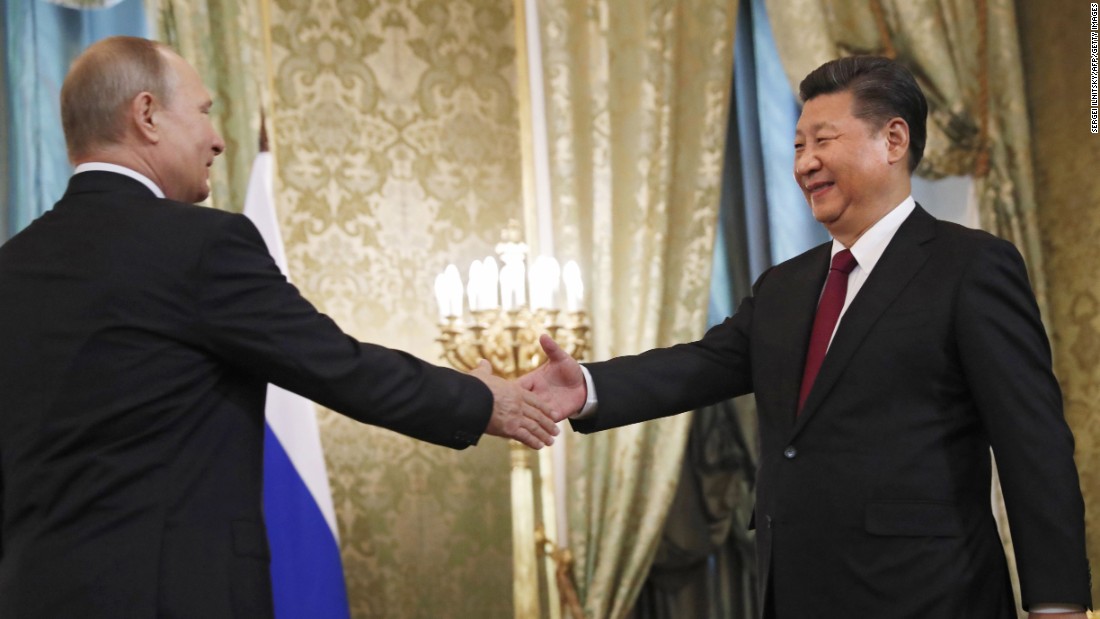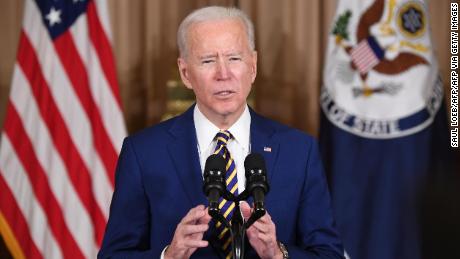Since then, the country and the world have endured a devastating crisis, and Biden’s aspirations have grown to match. Listen to him now. He’s not just trying to restore the soul of America; his aim is to save democracy around the globe.
Biden has noticed with alarm something many of us have been watching for years. Democracy is
losing ground, while autocracy is making strides. In Biden’s view, the outcome of the conflict between democracy and autocracy hinges, in part, on whether he as President — and the United States as a nation — can show the rest of the world that democracy is capable of responding to a crisis, keeping people safe and creating lasting prosperity.
But the issue is not whether the US or China will be the most powerful nation on Earth. It’s more important than that. The question is whether democracy will be overrun by regimes that want to operate in a world hospitable to tyrannical rule. Biden noted that former President Franklin Roosevelt mobilized the American people when democracy was tested during World War II. Showing democracy works, he
said, is the “challenge of the age.”
Biden argues that if he can help unite the country, drive a thriving economy, encourage scientific and technological enterprise and encourage an electorate to remain committed to the core principles of democratic freedom, the US can block the advances of anti-democratic forces. Americans can do it, Biden said, ” … proving that democracy is durable and strong.” With that, “autocrats will not win the future.”
The outcome of the conflict is very much in doubt. “The pattern is consistent and ominous,” the democracy watchdog Freedom House
declared in 2019, “Democracy is in retreat.” Its subsequent research found that the retreat continued — with 2020 as the
15th consecutive year of decline in global freedom. During the pandemic, Freedom House further wrote, “democracy’s defenders sustained heavy losses … shifting the international balance in favor of tyranny.”
Dictatorships are not idle bystanders in this transcendental battle of ideas. China used the pandemic to forcefully make the case that it is better at handling a global crisis. A February 2020 op-ed in the Chinese Global Times
proposed that “the truth is, US system is not nearly as efficient as the Chinese system.” The claim, in a state-run publication, is
easily rebuked. But it fits into Xi’s long-standing effort to show that the Chinese system is “
superior.”
The Chinese dictator has repeatedly
proclaimed his confidence in “a China solution to humanity’s search for better social systems.” By that, he presumably meant an authoritarian model replicating Beijing’s blend of capitalism, state control and barely-existent political rights.
It makes sense that China’s rulers and other autocrats want to discredit democracy. After all, there’s no greater threat to their hold on power than the people’s yearning for democratic freedoms.
But does it matter if democracy wins? Ask the people of Xinjiang, imprisoned in what the Chinese call “education camps,” under conditions human rights organizations call
crimes against humanity and the US government describes as a
genocide campaign. Ask Alexei Navalny, in Russia, imprisoned on
ridiculous charges because he dared investigate and publicize the
depths of corruption under President Vladimir Putin. Ask those fighting for a free press, LGBT rights or the right of the people to choose who governs them in places where democracy advocates face prison or worse, from
Hong Kong to
Myanmar, from
Nicaragua to
Cambodia.
The profound partisanship that dominates American politics today is a fabulous gift to the Xis and the Putins of the world. It’s as if, in the midst of a war, the US had handed its most powerful weapon to the enemy. Partisanship blocks the country’s leaders from working together to find solutions. In its most extreme iteration, it undercuts the President’s stature by the false claim that he was not legitimately elected.
Strengthening American democracy for the sake of protecting democracy around the world is the kind of mission that should unify the country — it’s not a Democrats versus Republicans goal. But in the current venomous environment, it’s hard to persuade American politicians to come together, and even harder to convince many Republicans to align behind this major goal of the Biden administration.
Democracy started losing ground around the world more than a decade ago, but it was only in the past few years that the earth started shaking under America’s system of government. The tremors turned violent during the past administration, and became nearly cataclysmic on January 6, when attackers tried to stop Congress from certifying that America’s voters chose Biden as their president.
That’s when the key battle to save global democracy was fought on American soil. “The worst attack on our democracy since the Civil War,” Biden called it. “We have stared into the abyss on insurrection and autocracy,” he said. Democracy won that day, but it was just one battle in a worldwide war.
![]()




